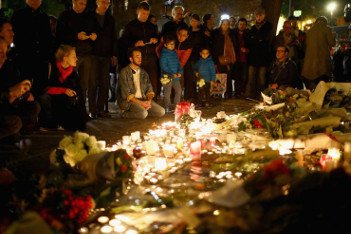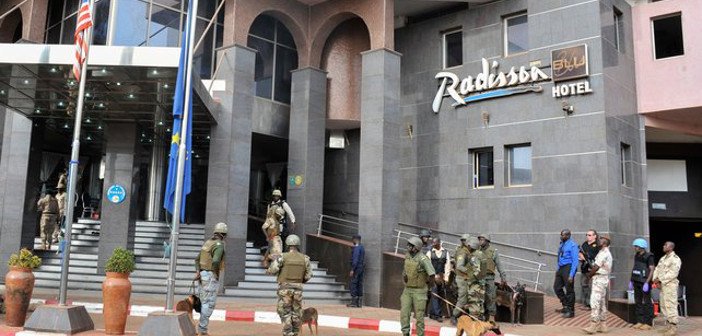The Paris Attacks and the Problem of Language
Fionola Meredith writes an opinion column in the Belfast Telegraph, one of Northern Ireland’s leading daily newspapers. In Friday’s edition, she is angry. She is forceful, polemical and vehement. Writing trenchantly, under the headline ‘Mealy-mouthed excusers of terror should just shut it,’ she draws readers in, with an appeal to a shared experience.

“You know what people mean when they talk about that Friday feeling.”
She, quite rightly, castigates the people who committed the atrocities in Paris and locates the responsibility for the deaths and injuries with them.
“The truth is the terrorists who committed last Friday’s outrages don’t care whether their victims are anarchic old cartoonists or little boys at a rock concert with their mum.”
She is right. The actions of the perpetrators are wrong and can be universally named as wrong. Her ire in Friday’s column is directed not at the perpetrators of the atrocities but at people who might, as she sees it, equivocate about them.
Her article highlights a real problem for people living in the Developed North of the world. Events unfolding in Bamako, Mali, where guests and staff at a hotel are being held under threat of violence further underline this problem. In raising the Bamako events here, in the context of the aftermath of the atrocity in Paris, this article may face Fionola Meredith’s ire.

“…But failing to mention Beirut or Syria sees you instantly slapped down as a crass cultural imperialist.”
Fionola Meredith’s most vehement challenge is to “…the default recourse to equivocation.”
What is the appropriate response then, apart from the unequivocal assertion that they were wrong, to the recent atrocities in Paris, Beirut, Syria, Bamako and elsewhere?[pullquote]The use of the term ‘we’ to imply all-inclusive circumstances is often unfounded. The use of the word ‘you’ to imply a collective experience of the world is complex, for it includes people who do not share the experience.[/pullquote]
There are language problems here. The use of the term ‘we’ to imply all-inclusive circumstances is often unfounded. The use of the word ‘you’ to imply a collective experience of the world is complex – even if ‘you’ means ‘the readership of the Belfast Telegraph, in print and on-line,’ for it includes people who do not share the experience Fionola Meredith uses to lead us into her column. Her anger heats her language and narrows her assertions.
Later that night 129 of them were cut down by barbarians with Kalashnikovs, and scores more injured. What had they done to deserve this? Nothing, except live a life of liberty in Paris, the first home of free thinking.
The term ‘barbarian’ poses problems. Certainly the people who did this are cruel, violent and death-dealing… And as human as Fionola Meredith and this writer. There are no monsters out there. Only people.

Who benefits from the use of such language by public writers in the press of a liberal democracy like Northern Ireland? Readers across the world may wonder at the special privileging of Paris as a home for ‘free thinking.’
Fionola Meredith has no time for the “awful sanctimonious, supercilious piety which passes for modern liberalism,” and wonders, in listing some of the victims – “What reasons could be found for their murders?”
Fionola Meredith’s appeal is to Reason, in the Enlightenment values of liberty and democracy. She fears ‘we’ are in danger of ‘going under.’ One of the problems with many people’s experience of these values is that they are not all they claim to be.
Fionola Meredith, towards the end of her column, encounters this problem, but shies away from it. She is not alone in that. It is thoroughly scary and complicated. It is a problem of language, and of action.
When are the excuses going to stop? Hand-wringing appeasement or well-meaning attempts at understanding do nothing to restrain nihilistic death cults (neither does a mad blitzkrieg of bombing, but that’s another story).
There isn’t ‘another story.’ There are many millions of stories and they are all linked, and they are all human and live.[pullquote]There isn’t ‘another story.’ There are many millions of stories and they are all linked, and they are all human and live.[/pullquote]
Ironically, on the same web-page as Fionola Meredith’s opinion piece, there is an advertisement for no-risk investment opportunities in France. Might this include arms manufacturers? The world goes on and the atrocity in Paris can be used as fuel for the ad-makers.
To end. A small language note for equivocators and, thus, for all people. It’s not ‘either/or.’ It’s ‘and/all.’ Consider the word ‘but’ and try the word ‘and.’ As in:
The killings in Paris are wrong. And so is the French arms’ industry.
Images via rte.ie
